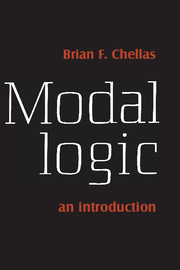Summary
In this chapter we introduce an operator ○ to represent the deontic concept of obligation. (In order not to beg any important questions, we do not – except for a single exercise – consider a correspondingly dual operator P for the deontic concept of permissibility.) In section 6.1 we present what we call standard deontic logic, and in section 6.2 we examine some further principles that have been suggested. In section 6.3 we discuss the role of time in the determination of obligations, and we introduce temporal concepts into the language and into the models for it. Section 6.4 contains a theorem about past tense obligations. Finally, in section 6.5 we point out some shortcomings with respect to the adequacy and correctness of the analysis of deontic logic in terms of normal systems and standard models.
The purpose of this chapter is illustrative: we wish to show how standard models and normal systems can be employed in the analysis of philosophical questions. The reader must judge the merit of the endeavor, as well as the extent of its success.
Standard deontic logic
Into the language of propositional logic we introduce sentences of the form ○A, meant to express propositions of the form it ought to be the case that A, or it is obligatory that A. Thus the operator ○ represents a concept of deontic necessity.
- Type
- Chapter
- Information
- Modal LogicAn Introduction, pp. 190 - 204Publisher: Cambridge University PressPrint publication year: 1980



